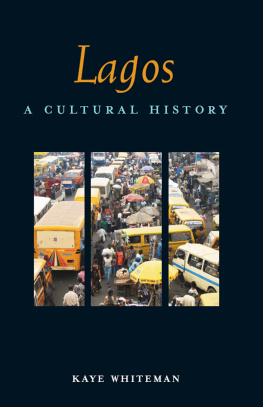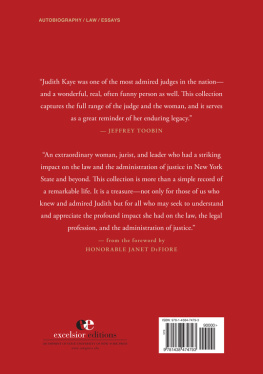CHAPTER I.
Table of Contents
[18001801.]
Shah Zemaun and the Douranee EmpireThreatened Afghan InvasionMalcolms First Mission to PersiaCountry and People of AfghanistanFall of Zemaun Shah.
At the dawn of the present century, Zemaun Shah reigned over the Douranee Empire. The son of Timour Shah, and the grandson of the illustrious Ahmed Shah, he had sought, on the death of his father, the dangerous privilege of ruling a divided and tumultuous people. Attaining by intrigue and violence what did not rightfully descend to him by inheritance, he soon began to turn his thoughts towards foreign conquest, and to meditate the invasion of Hindostan. His talents were not equal to his ambition, and his success fell far short of the magnitude of his designs. There was too little security at home to ensure for him prosperity abroad. And so it happened, that he was continually marching an army upon the frontier, eager to extend the Douranee Empire to the banks of the Ganges; and continually retracing his steps in alarm, lest his own sovereignty should be wrested from him in his absence. For many years Zemaun Shahs descent upon Hindostan kept the British Indian Empire in a chronic state of unrest. But he never advanced further than Lahore, and then was compelled precipitately to retire. Starvation threatened his troops; a brotherly usurper his throne; and he hastened back lest he should find Prince Mahmoud reigning at Caubul in his stead.
This was in 1797,
The new century had scarcely dawned upon the English in India, when the perils which seemed to threaten them from beyond the Indus began to assume a more complicated and perplexing character. The ambition of a semi-barbarous monarch and the inflammatory zeal of hordes of Mussulman fanatics, were sources of danger, which, however alarming, were at least plain and intelligible. But when it was suspected that there was intrigue of a more remote and insidious character to be combatedwhen intelligence, only too credible, of the active efforts of French diplomacy in Persia, reached the Calcutta Council-Chamber, and it was believed that the emissaries of Napoleon were endeavouring to cement alliances hostile to Great Britain in every quarter of the Eastern world, the position of affairs in Central Asia was regarded with increased anxiety, and their management demanded greater wisdom and address. It was now no longer a question of mere military defence against the inroads of a single invader. The repeated failures of Zemaun Shah had, in some degree, mitigated the alarm with which his movements were dimly traced in Hindostan. The Douranee monarch had lost something of his importance as an independent enemy; but as the willing agent of a hostile confederacy, he appeared a more formidable opponent, and might have become a more successful one. An offensive alliance between France, Persia, and Caubul, might have rendered the dangers, which once only seemed to threaten us from the north-west, at once real and imminent. To secure the friendship of Persia, therefore, was the great aim of the British Government. It was obvious that, whilst threatened with invasion from the west, Zemaun Shah could never conduct to a successful issue an expedition against Hindostan; and that so long as Persia remained true to Great Britain, there was nothing to be apprehended from French intrigue in the countries of Central Asia. It was determined, therefore, to despatch a mission to the Court of the Persian Shah, and Captain John Malcolm was selected to conduct it.
The choice could not have fallen on a fitter agent. In the fullest vigour of life, a young man, but not a young soldierfor, born in that year of heroes which witnessed the nativity of Wellington, of Napoleon, and of Mehemet Ali, he had entered the service of the Company at the early age of thirteenCaptain Malcolm brought to the difficult and responsible duties entrusted to him, extraordinary energy of mind and activity of bodytalents of the most available and useful charactersome experience of native courts and acquaintance with the Oriental languages. He had been successively military secretary to the commander-in-chief of Madras, town-major of Fort St. George, assistant to the Resident at Hyderabad, and commandant of the infantry of the Nizams contingent. When that army took the field in Mysore, and shared in the operations against Tippoo Sultan, Captain Malcolm accompanied it in the capacity of political agent, which was virtually the chief command of the force; and, after the reduction of Seringapatam and the death of Tippoo, was associated with General Wellesley, Colonel Close, and Captain Munro, in the commission that was then appointed for the settlement of the Mysore country.
This was in 1799. In that same year he was selected by Lord Wellesley to fill the post of envoy to the Court of Persia. With such address had he acquitted himself in all his antecedent appointments; so great had been the knowledge of native character, the diplomatic tact, and the sound understanding he had evinced in all his negotiations; that at an age when the greater number of his contemporaries were in the discharge of no higher duties than those entailed by the command of a company of sepoys, Captain Malcolm was on his way to the presence of the great defender of Islamism, charged with one of the most important missions that has ever been despatched by the British-Indian Government to the Court of a native potentate.
The mission, says Captain Malcom, was completely successfula declaration repeated more emphatically by Lord Wellesley. But some years to come of empire he was not destined to see. Even as Malcolm wrote, the days of his sovereignty were numbered, and the bugbear of Afghan invasion was passing into tradition.
The envoy was empowered either to offer a subsidy of from three to four lakhs of rupees for a term of three years, or by a liberal distribution of presents to the king and his principal ministers, to bribe them into acquiescence. Malcolm chose the latter course. He threw about his largesses with an unstinting hand, and everything went smoothly with him. The farther he advanced into the interior, the greater was the attention shown to the Mission, for the greater was the renown of the liberality of the Christian Elchee. Every difficulty melted away beneath the magic touch of British gold. in the Persian Gulf, on the expediency of which, though much and ably controverted by others, Malcolm never ceased to expatiate so long as he had a hand in the game of Persian diplomacy.
This provision, which was to have been contained in the commercial treaty, was said to contemplate only commercial objects; but, there was to be a permission to fortify; and commerce, with an occasional permission of this kind, had made India a British dependency, and the Persians were not unreasonably jealous, therefore, of a commencement which might have had a similar end.
In February, 1801, Captain Malcolm reported that he had accomplished the object of his mission, and brought his labours to a close. Whether with credit or not, he added in a private letter, it is the province of my superiors to judge. I can only say, in self-defence, that I have done as much as I was able; and no man can do more. I am far from admiring my own work, or considering it (as termed in one of the preambles)












